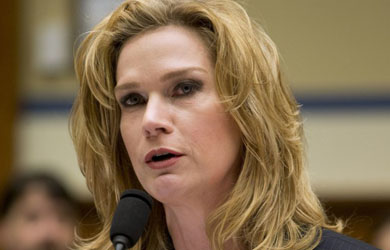Kansas Secretary of State Kris Kobach, the driving force behind draconian anti-immigrant laws in Arizona and Alabama and a rising national figure on the Right, is close to a major victory on one of his other pet projects – gaining attention for the mythical problem of “election fraud.”
Kansas’ legislature is poised to grant Kobach’s office the power to prosecute election fraud cases that it identifies, a responsibility previously reserved for county and federal prosecutors. Kobach claims that prosecutors and the state attorney general’s office are neglecting these cases because of “a very full plate.”
But a look at even a few of the cases Kobach claims that prosecutors are neglecting tells a very different story. In February, Kobach told The Topeka Capital-Journal that he had referred eleven “slam dunk” cases to prosecutors, none of which had ended in convictions. But one of the prosecutors responsible for following up on those cases found that most were isolated incidents involving people who were just confused about the voting laws:
Johnson County District Attorney Stephen Howe took exception to some of Kobach’s characterizations in his testimony on behalf of the Kansas County and District Attorneys Association. Howe said Kobach’s bird’s-eye view of widespread voter fraud crumbles when investigated by those on the ground.
For instance, Howe said one double-voter his office investigated was an elderly man showing “the early stages of dementia.” Howe’s office notified the man’s family rather than prosecute him.
Another alleged double voter was a developmentally disabled man.
“Are we supposed to prosecute that case?” Howe asked. “I chose not to.”
This fits with the pattern. In 2011, Kobach claimed that there had been 221 incidents of voter fraud in Kansas between 1997 and 2010. Yet just seven of these resulted in convictions.
Kobach now claims that he has identified at least 30 cases of illegal double voting in the 2012 election by finding people with the same name and birthdate who voted in two separate states. Such matching tactics have in the past have resulted not in legitimate voter fraud convictions, but in embarrassing errors and mass wrongful disenfranchisement.
Kobach’s issue with the state’s prosecutors seems to be not that they haven’t properly investigated voter fraud – but that they have failed to promote the conspiracy theory about widespread voter fraud that, when it becomes popular, benefits people like Kris Kobach and the policies they pursue.





